From 6 to 700 in seven years, midwives in South Sudan working to change maternal mortality rate
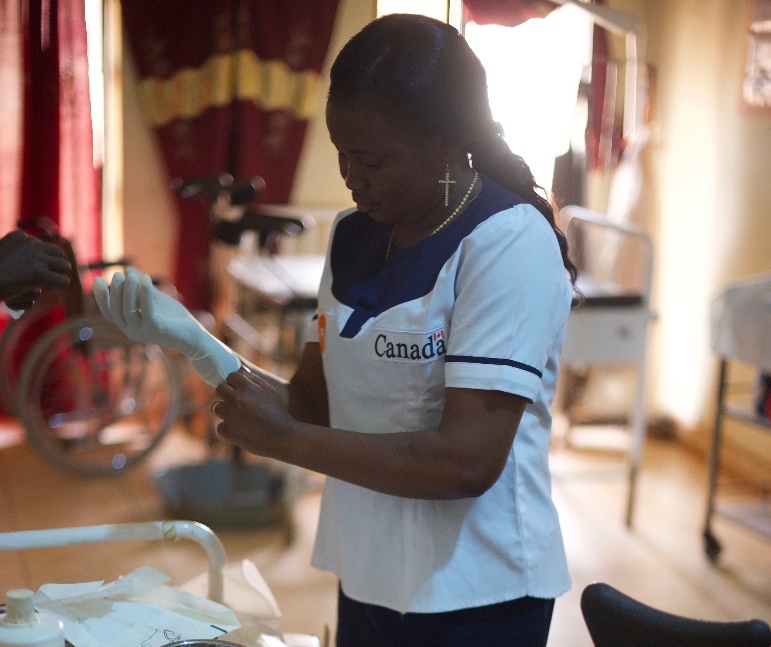
Midwife Viola putting on her gloves
Viola James became interested in midwifery as a teenager, after assisting her aunt, a traditional birth attendant, with births. Now fully trained, she provides better care than unskilled attendants. “There is such a big difference,” she says. “Even basic things, like wearing [hygienic] gloves. My aunt often used to do deliveries without gloves!”
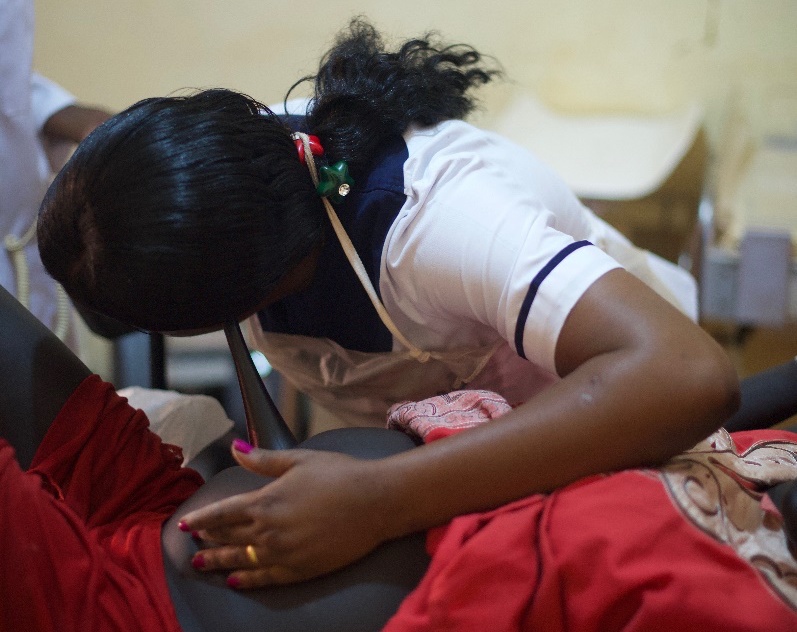
Midwife Viola checking baby’s heartbeat
Viola James became interested in midwifery as a teenager, after assisting her aunt, a traditional birth attendant, with births. Now fully trained, she provides better care than unskilled attendants. “There is such a big difference,” she says. “Even basic things, like wearing [hygienic] gloves. My aunt often used to do deliveries without gloves!”
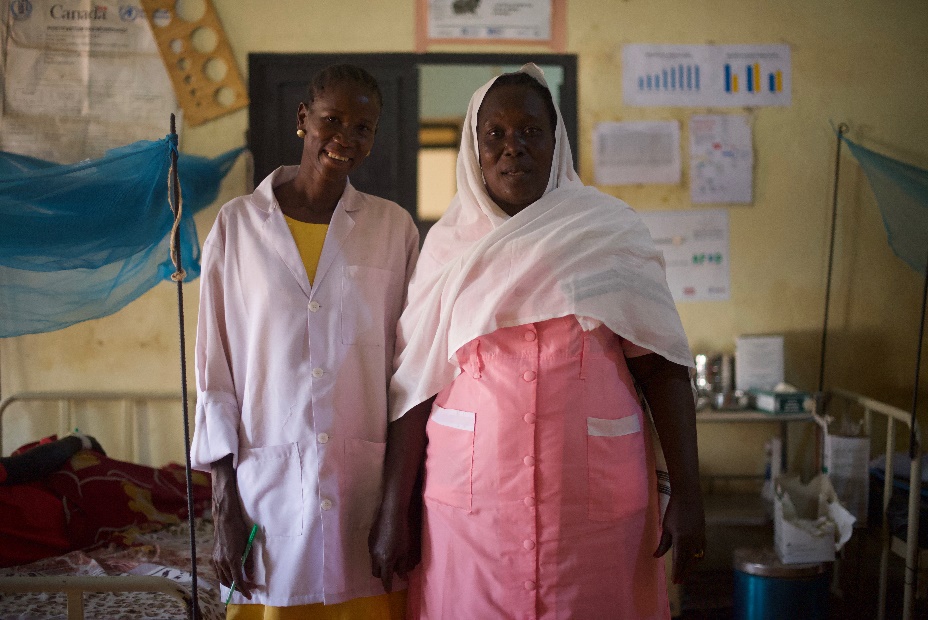
Margaret and Hayat WTH Labour Ward
Viola James was among the first intake of midwifery students in post-independence South Sudan, when there were only six trained midwives in the country. Now, thanks to the efforts of the Ministry of Health, with the support of partners, there are 700 midwives, including Margaret Hayat who work in the Wau Teaching Hospital’s labour ward. While older midwives pass on the benefits of their experience, younger midwives share their more up-to-date learning and knowledge.
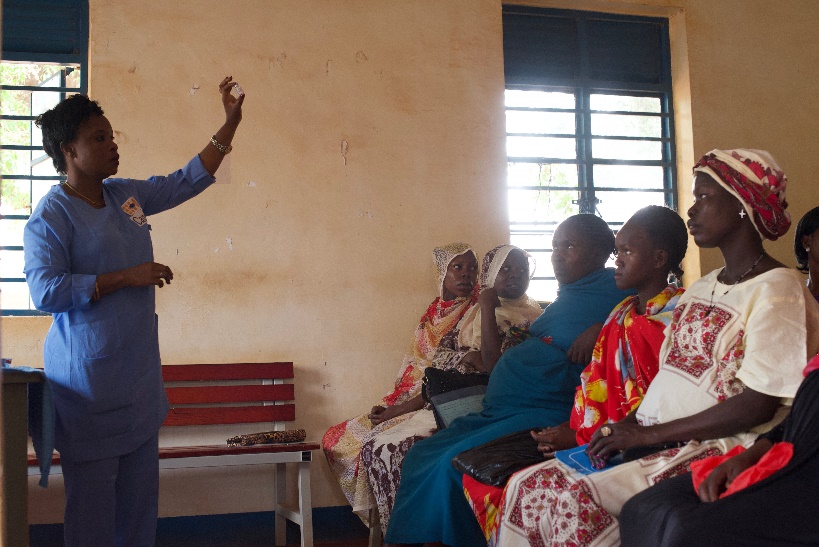
ANC midwife Dora Ireneo Kunda
Dora Ireneo Kunda is a midwife at the Wau Teaching Hospital’s antenatal clinic. Part of her job involves educating women about family planning. “We explain to woman about the importance of spacing their children, so their bodies have time to recover between pregnancies,” she says. “We also try to dispel the notion that we are trying to stop women from having children – we just want them to have a choice.”
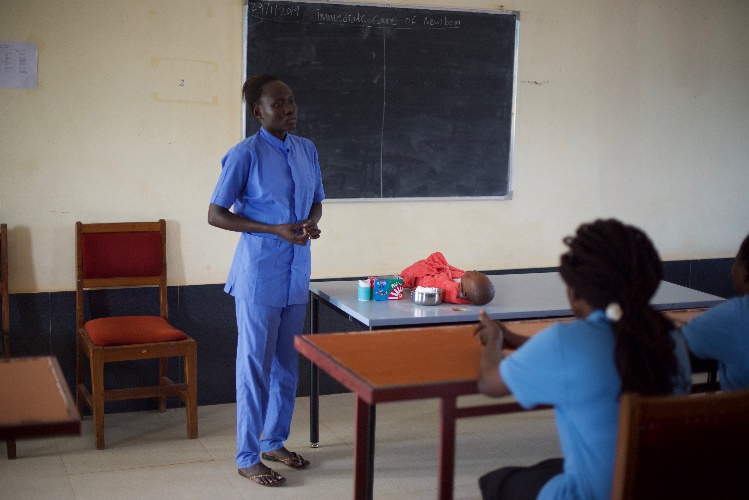
Mary Abuk – newly trained midwife teaching at Mary Help Hospital
Mary Abuk is a newly trained midwife working and teaching at Mary Help, another hospital in Wau, South Sudan. In this class, she instructs students about the immediate care of newborn babies.
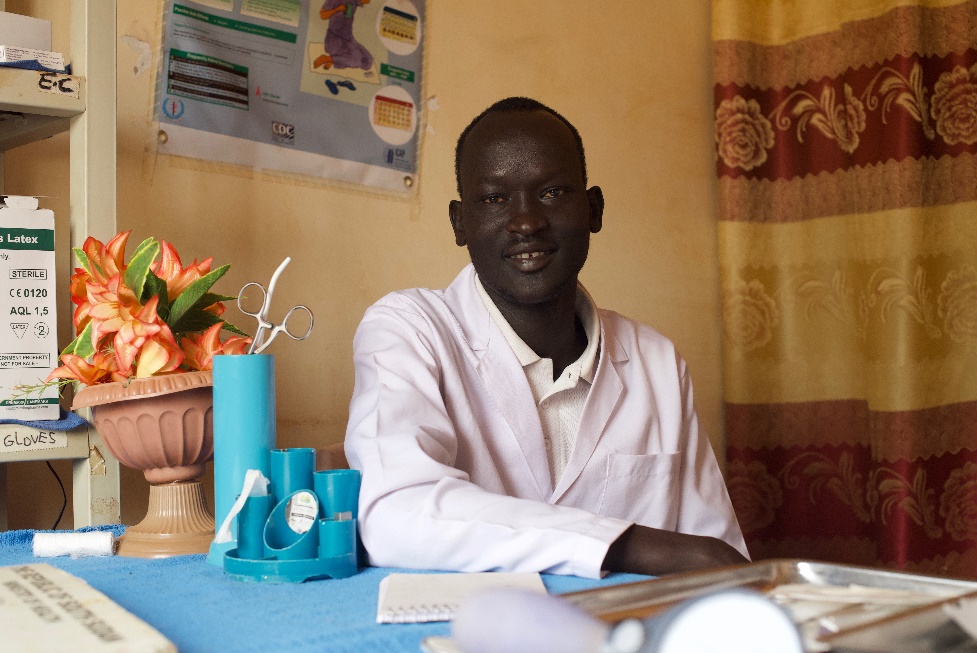
Santino Deng Awer male midwife
Santino Deng Awer is one of a growing number of male midwives. In his first year at the Wau Health Science Institute, there were six male and ten female students. Since graduating in December 2018, he has worked as a volunteer at the Wau Teaching Hospital. “Many people are critical, saying it’s not good for a man to be a midwife,” he says. “But I don’t feel bad because it’s my choice and my interest comes from what I have seen in South Sudan. My stepmother died of post-partum haemorrhaging. People just didn’t know what it was, even though it’s very simple to control. With my training, I can help save lives.”



